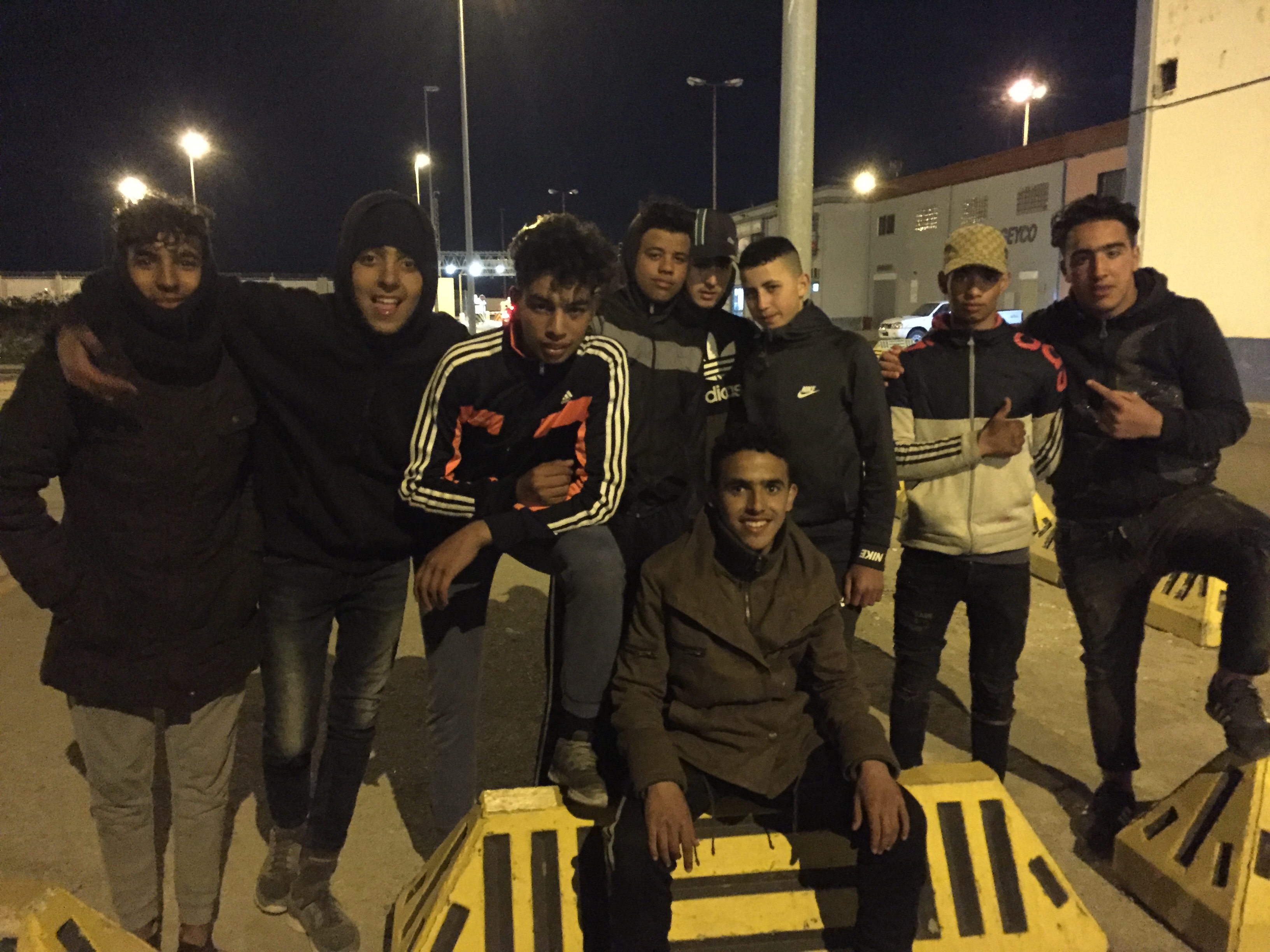Moroccan teenagers in Ceuta’s port area. Photo: Guy Hedgecoe
The desperation of migrants attempting to reach their dreamed-of destination has become a familiar sight on our TV and computer screens, its impact inevitably diluted by the 24-hours cycle. But on a recent trip to Spain’s North African city of Ceuta, I was reminded of the lengths to which many migrants will go in order to cross borders.
Several hundred Moroccan teenage boys are in Ceuta and its sister city, Melilla, hoping to cross the Mediterranean and reach the Spanish mainland. Many of them are living in shelters run by local authorities, but there are dozens who prefer to sleep rough near the port areas of the cities, scrounging food where they can. In Ceuta, they sleep in abandoned cars or under wooden pallets and most days they scale the wall surrounding the port car park and attempt to stow away on vehicles waiting to board the ferries. Sometimes they hide in the back of lorries or trucks carrying goods, other times they cling to the underside of these vehicles. The success rate appears to be low. I spoke to boys who had tried to stow away almost every single day for the last couple of months, only to be caught by the civil guard each time.
But the occasional success story keeps their hopes up. The week before I was there, a 13-year-old boy had managed to get across to the Spanish mainland, having hidden away in a ferry.
Ceuta may be part of Spain, but it’s not part of the Schengen space, so reaching it does not mean a migrant is automatically able to travel anywhere in the EU. Also, it’s a relatively small city, where professional and study opportunities for migrants, particularly of Moroccan origin, are limited. As one boy told me, he only feels “twenty percent” in Spain when in Ceuta.
With elections looming, the presence of these boys in both Ceuta and Melilla has become a political issue. Being under the age of 18 protects them from being repatriated, a norm which has been debated recently as some parties pressure for them to be treated as adults. They even have their own acronym – MENA, or menores extranjeros no acompañados.
None of which is to suggest that this is an easy phenomenon to resolve. These teenagers almost always leave home with the blessing of their families, despite the obvious risks they run. Recently, a man was found guilty of sexually abusing Moroccan migrant children in Melilla, something which is reportedly commonplace. And in February, a 15-year-old boy paid the ultimate price for pursuing his dreams: he was crushed to death by the lorry he was trying to hide under in Ceuta’s port.

0 Comments